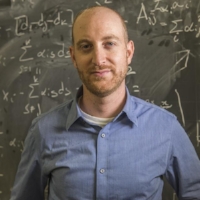transitioning to academic independence
saturday, June 9, 2018 | 10:00 AM - 10:55 AM | Yellowstone Room 1, Yellowstone Room 2
Many postdoctoral scholars wish to become academic faculty; however obtaining a faculty position is only the beginning of transitioning to academic independence. Upon becoming a professor, one must consider multiple options: whom do you hire? What equipment and supplies do you purchase? Which students do you choose? How do you balance time for research, grants, and teaching? Join our panelists to learn from those who have recently walked this path to learn how to make the transition to academic independence as smooth as it can be.
Cristina Aguayo-Mazzucato, MD PhD
Research Associate at Joslin Diabetes Center, Instructor in Medicine at Harvard Medical School
Edward Chouchani, PhD
Assistant Professor at Harvard Medical School
Genevieve Kozak, PhD
Assistant Professor in Biology at UMass-Dartmouth
Genevieve Kozak received her BS from Cornell University in Biology and her PhD at the University of Wisconsin in Zoology. She did a postdoc at the University of Illinois and a second postdoc at Tufts University, working in Evolutionary Genomics. She recently started as an Assistant Professor in Biology at UMass-Dartmouth. Her research integrates genomic, behavioral, and evolutionary approaches to understand the formation of new species.
Ethan Meyers, PhD
Assistant Professor of Statistics at Hampshire College
Ethan Meyers is an Assistant Professor of Statistics at Hampshire College and a Research Affiliate at the Center for Brains, Minds and Machines at MIT. His research focuses on developing machine-learning-based data analysis methods, and in collaborations with experimental neuroscientists, his work has given insights into the neural basis of working memory, learning and attention. Ethan’s teaching interests focus on Statistics, Data Science, and Computational Neuroscience. Ethan received his BA in computer science from Oberlin College in 2002, and a Ph.D. in computational neuroscience from MIT in 2010.



